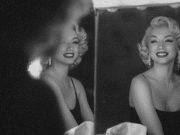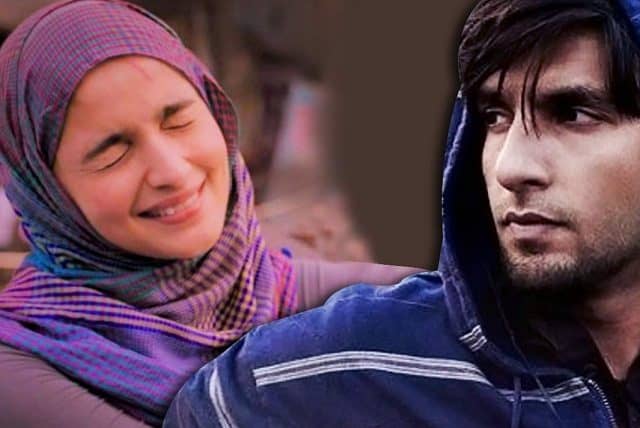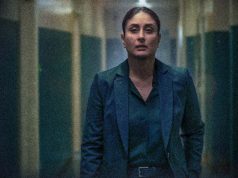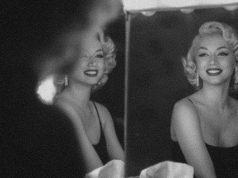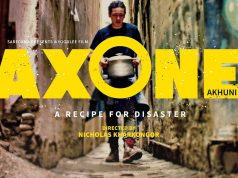Let’s dissect Gully Boy from different angles. At the very outset, the long walk of a person less known and seen in Bollywood – Vijay Verma as Moeen – tells you that the movie is about people less ordinary.
While walking, two persons join him and the framing is such that when Moeen stops, he is in the center and the two persons come and stand a little behind him: one to his left and the other to his right.
Even though Ranveer Singh aka Murad is discovered to his left, Moeen does not look at either of them. He is focused. He is serious. The complete scene is on him; an ordinary person portrayed vis-à-vis a star, who is not given any heroic entry, no hype.
Locations used as characters
The house where Murad lives is congested. There is tension and lots of disturbances. This sets a negative mood. In the course of the film, Murad is forced to change the house after being kicked out. His new house is more spacious wherein the window overlooks the city. This brings positivity in his life, and Murad’s life starts taking positive turn.
The use of location as a character, is prominent in the song ‘Mere Gully Mein’. By using vivid locations of the slum, vividness gets added to the song.
There is generally a distance, a sense of incompleteness and a fear to be spotted by someone when it comes to love between Murad and Safeena (Alia Bhatt). The locations describe the situation of their love life as well.
Sometimes Safeena is at the railway platform and Murad is on the station foot over bridge, while at times Safeena is at her bathroom window as Murad looks at her from downstairs. They talk over phone even when they can see each other. Both of them make hand gestures which show the distance between them and the urge to be close.
Scenes are well crafted
There is a scene where Murad goes to meet Safeena over the bridge where they used to meet generally, to tell that he has got a contract to shoot a song. At the end of this scene, Safeena does not like the fact that Murad will be working with a girl, Sky (Kalki Koechlin).
When she leaves the bridge, there is a top shot showing Murad standing on the bridge alone. It is in this scene the audience discovers that the bridge, which was their meeting place, is surrounded by tons of garbage. The top shot and this discovery of huge garbage is craftily used as symbolism to show that something is not good.
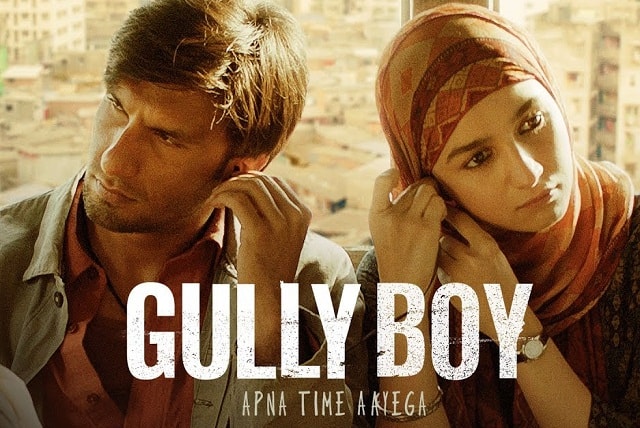
The narrative is very subtle with which the film touches over various issues. It also shows the disturbance that patriarchy brings in lives of people associated with it.
Razia (Amruta Subhash) quarrels when Shakir (Vijay Raaz), brings a second wife in her presence. The taunts of Murad’s grandmother (Jyoti Subhash) is well seen by Murad who watches his mother crying helplessly. Maya, the second wife, is shown unaffected by family situations.
Brother of Razia, Ateeq (Vijay Maurya), does not even care. Whatever the husband does, the wife has to simply obey. According to him, she even can’t get separated from husband. These acts are in the beginning of the film, and this is how the family is introduced to the audience.
Woman is a patriarch too
The character that Sheeba Chadda plays as Hamida, potrays the patriarch in women. She is always after her daughter. Hamida takes utmost care that Safeena should not mingle with any boy. She makes sure that Safeena is safe by ordering her to leave her studies. She grumps and taunts that Safeena is able to choose her husband through bio-data forms and photographs.
An interesting scene is the subtle change of side that Murad’s grandmother shows when he hits his father. The film effectively touches over poverty and gives reasons to understand as to why children are used as drug peddlers.
Gully Boy beautifully captures love and means of love in orthodox families. It shows the soul of an artist. When an artist is with his art, he is a different person. He is in different mode.
Scene like that of security guard outside a club gesturing Murad to stay away from the club area because he was driver, effectively portrays the effects of class system. The frustration that develops, the hard and tough a person becomes and the distance that develops between two persons just because the amount in their pockets are different.
Zoya Akhtar has directed the film well. She and her crew have researched well. The film is authentic is various aspects. The authentic car robbery style, the authentic use of locations, the authentic use of local language, the authentic portrayal of characters and last but not the least the authentic rap. The journey of the hard life making a hard rapper is commendable.











